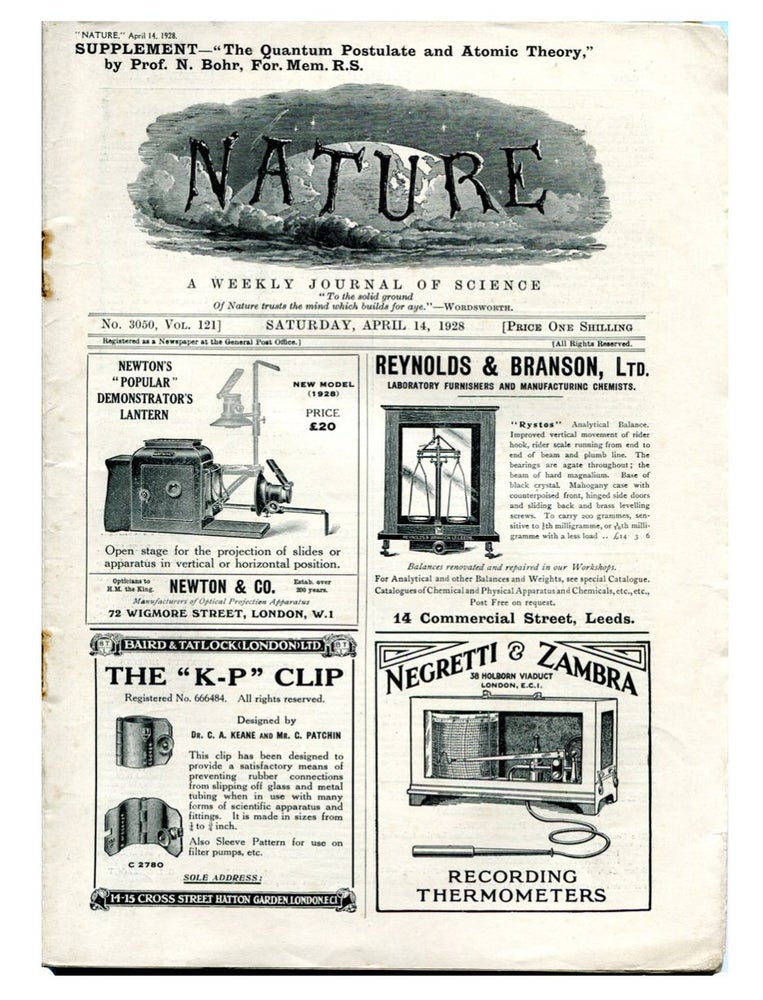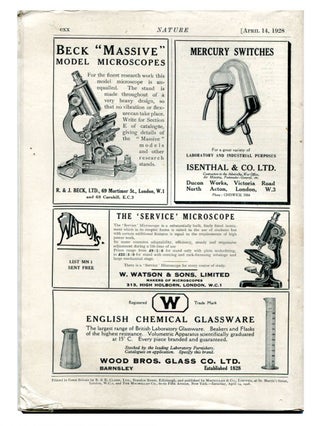The Quantum Postulate and the Recent Development of Atomic Theory
“From the epistemological point of view, the discovery of the new type of logical relationship that complementarity represents is a major advance that radically changes our whole view of the role and meaning of science...” -Dictionary of Scientific Biography
"It is hard to overestimate was Bohr has done... The principle of complementarity... is possibly one of the greatest discoveries in the scientific history of mankind, with ramifications on many other levels of science." -Josef Jauch
FIRST EDITION IN ENGLISH IN ORIGINAL WRAPPERS of Bohr’s statement of his ‘complementarity’ principle, the basis of what became known as the ‘Copenhagen interpretation’ of quantum mechanics. (The paper was published essentially simultaneously in Danish, English, French and German.).
“Immediately after Heisenberg’s work on uncertainty relations, Bohr presented his concept of complementarity at a conference a Lake Como in Italy... Bohr’s lecture marked the first attempt to provide a genuine philosophical underpinning to the new advances in physics. The uncertainty relations had provided Bohr a concrete measure of the consequences of the wave-particle duality and thereby a physics-based justification for the ideas he was working on. Bohr had already embraced the wave-particle duality underlying quantum theory and he presented the concept of complementarity as the fundamental feature of a new conceptual framework broad enough to include it” (Paul McEvoy, Niels Bohr).
“For Bohr, complementarity was an almost religious belief that the paradoxes of the quantum world must be accepted as fundamental, not to be ‘solved’ or trivialized by attempts to find out ‘what’s really going on down there.’ Bohr used the word in an unusual way: the ‘complementarity’ of waves and particles, for example (or of position and momentum), meant that when one existed fully, its complement did not exist at all” (Louisa Gilder, The Age of Entanglement).
IN: Nature, vol. 121, no. 3050, April 14, 1928. Octavo, the complete issue in original wrappers; custom box. Some wear to original wrappers; rust on staples. RARE in original wrappers.
Check Availability:
P: 212.326.8907
E: michael@manhattanrarebooks.com


